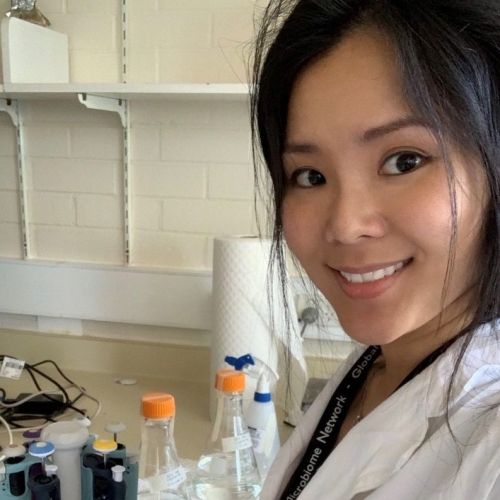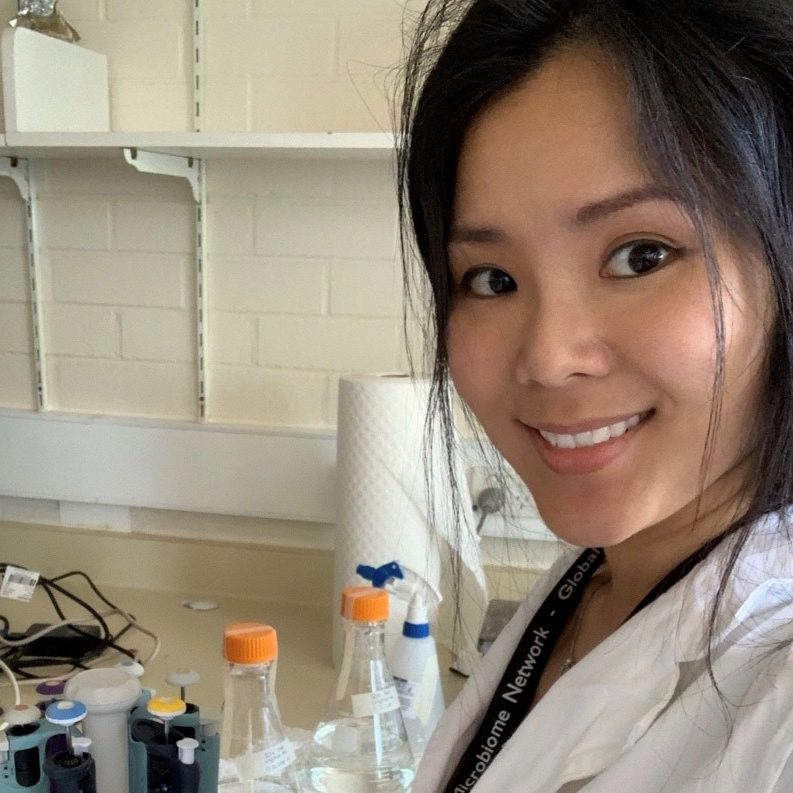
Wenna Lee
Murdoch University
My PhD commenced at Murdoch University in 2020 to investigate the immunological responses of tick-bitten patients over various time points via a systems biology approach. It is anticipated that the results of this study will identify potential biomarkers, add new knowledge about tick bites in Australia to improve the lives of patients living with debilitating symptoms post tick bite.
How did you get into bioinformatics?
Over the duration of my PhD studies, I would be generating transcriptomics, proteomics and metabolomics data which will be integrated with other parameters, such as haematological and metagenomic data and psychometric profiles. Bioinformatics is the logical step to bypass the constraints of handling and analysing this magnitude of data generated.
What advice would you give to your younger self or others wanting to studying the mathematical sciences?
I commonly hear people express their aversion to mathematics or that they aren’t tech-savvy. I would like to encourage people to keep an open mind to at least give it a go before shunning the field entirely.
What was your motivation for attending AMSI BioInfoSummer?
Perusing the program of AMSI BioInfoSummer 2020 symposium that was sent around via email excited me, as not only were the topics relevant to my current research, it also covered machine learning and artificial intelligence which I am interested in for my future studies.
You received an AMSI BioInfoSummer registration scholarship to attend AMSI BioInfoSummer. How important was this in terms of your ability to attend and fully participate in the sessions throughout the week?
The AMSI BioInfoSummer registration scholarship is a good initiative to help people like me at the start of their research journey be part of something that might otherwise have been out of reach. I am thankful to be awarded this scholarship and being a part of a well-planned and informative event.
Being awarded this scholarship enabled me to have access to various experts in the bioinformatics field without guilt of reaching into financial resources meant for my school-aged children.
What was your main take away from AMSI BioInfoSummer?
Single cell studies stood out to me as they can be used in a variety of ways which can generate data with a higher precision than pooled cell data. I would very much like to incorporate these into my future experiments.
If a peer asked you if they should attend AMSI BioInfoSummer, how would you describe the conference to them?
AMSI BioInfoSummer features an eclectic mix of interesting talks from experienced scientists in a format that is engaging.
BioInfoSummer was held as a virtual event for the first time in 2020. What was the biggest positive from your point of view of holding it in this format and/or the biggest challenge?
A virtual event increased the odds that I could attend as I did not have to plan for the logistics of travel and lodging. However, the downside was the workshops which I would have preferred to participate in face-to-face.
Where do you want the mathematical sciences to take you? Where do you see yourself in five or ten years’ time?
The use of high-throughput technology has given rise to a wide variety of data types as well as a large amount of data generated which means that computing and mathematical expertise will be required ubiquitously in any field of research. In five to ten years’ time, I hope to see myself adept with bioinformatic tools that will be instrumental in my research outcome.
2020 has been a very unusual and challenging year. What is one thing you have learnt about yourself this year? Or a new skill you have developed?
2020 have shown me how resilient I am towards obstacles in a changing landscape.

